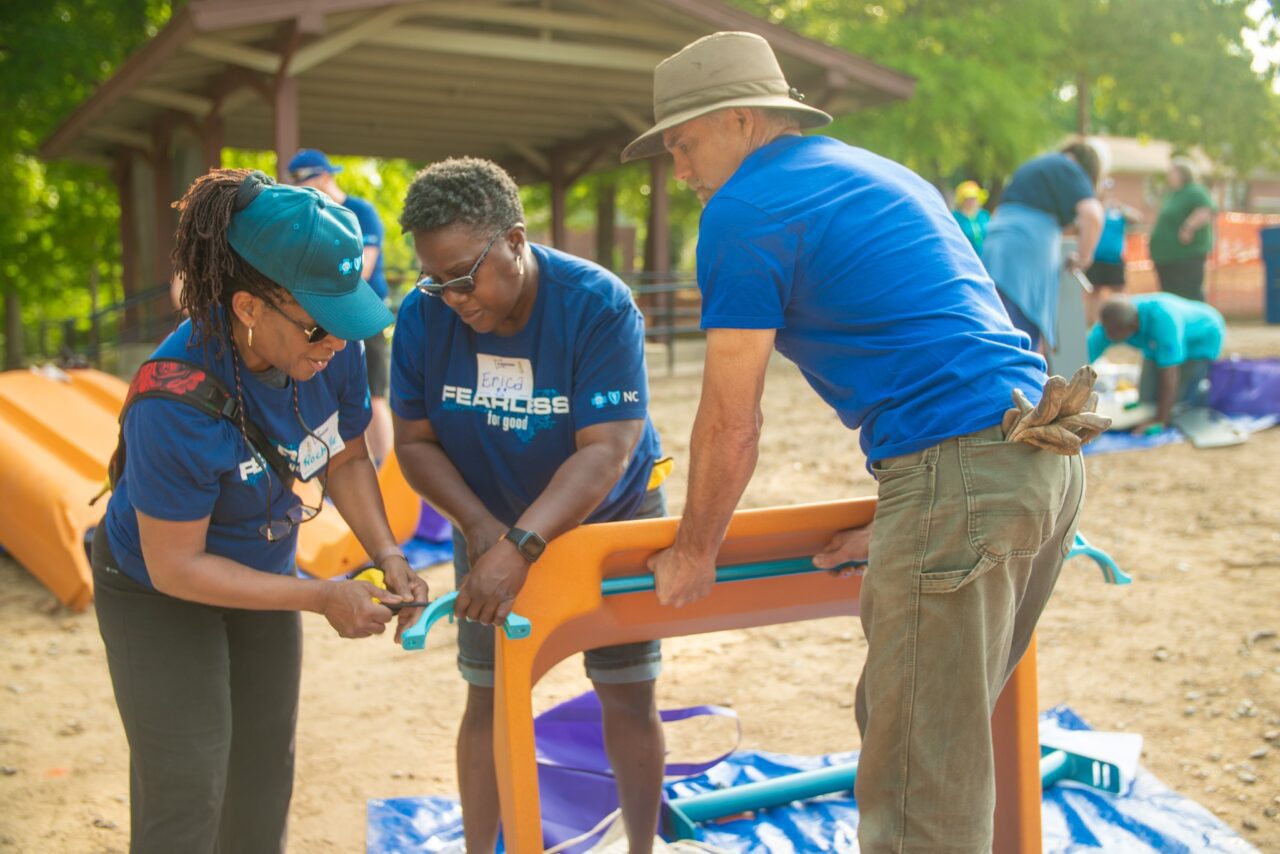When It Comes to Mental Health, Outdoor Play Is Serious Business

When I was a child growing up in Durham, NC, my siblings and I preferred to play outside. The world seemed to offer itself to our imaginations, from the box turtles and blue-tailed skinks that populated the yard to the promised adrenaline rush of roller skating as fast as we could on the streets of our neighborhood. Outside offered much more to us than could be found within the walls of our house.
In our minds, being indoors simply did not have much allure or many options for fun – we only had three networks and a glitchy, pixelated Commodore 64 gaming system. Today, nature faces stiff competition from satellite and streaming services, smart phones and high-def gaming systems. Screen dependency has become a real phenomenon. According to the World Health Organization, 80% of adolescents are too inactive.
Prying children away from their devices may feel like a thankless effort, but in an era when mental health needs among children and adolescents have reached crisis levels, it’s never been more important to get young people outdoors and active.
Play Is a Workout for the Body and the Mind
When we think of the health benefits of outdoor activity, physical fitness probably comes first to mind. But exercise supports cognitive development and improves mental health.
Unstructured outdoor play is an especially potent medicine. Getting outdoors yields psychological benefits that children just don’t get through physical exercise in a gym. Studies have shown that “green exercise”:
Promotes emotional and social resilience
Encourages the development of motor skills
Supports emotional well-being
Improves academic performance
When children go outside, all their senses engage with the world around them. They take in the fresh air. They can feel the sun’s warmth and touch the tiny ridges on a blade of grass. They smell flowers and greenery. They hear birds sing. As North Carolina’s Division of Child Development and Early Education points out, outdoor play spaces provide opportunities for children “to play freely with peers, expand their imagination beyond the restraints of indoor activities, release energy, and explore.”
Of course, playtime also supports physical health as well. Extended periods of outdoor activities can reduce a child’s risk of obesity, and carefully moderated exposure to sunshine produces vitamin D, which promotes bone development and a healthy immune system.
Furthermore, exercise capacity is associated with cognitive performance. Children who have higher exercise capacity have an increased ability to sustain their attention and have better working memory.
Building Better Access to Safe Playspace
Encouraging children to get outside should be an easy option for any parent or caregiver wanting to instill healthy behaviors that can last a lifetime. Unfortunately, for many children, finding outdoor place to play isn’t so simple.
Green spaces to romp around and explore aren’t equitably distributed. In many cities and towns, families living in affluent areas have greater access to parks, greenways and community gardens. These areas are scarce in many historically underserved communities.
Blue Cross and Blue Shield of North Carolina (Blue Cross NC) understands that sidewalks and parking lots don’t offer the same opportunities for safe, imaginative play that green spaces and playgrounds do. Every child should have a safe place to jump around. That’s why we regularly support efforts to build and refurbish public spaces that promote overall well-being for individuals, families and communities.
Recently, the City of Durham, Durham Parks and Recreation, Blue Cross NC and KABOOM! collaborated on the creation of a new playspace at Durham’s Burton Park, giving hundreds of kids access to a safe, high-quality place to play.







